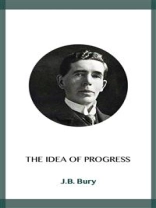We may believe in the doctrine of Progress or we may not, but in either case it is a matter of interest to examine the origins and trace the history of what is now, even should it ultimately prove to be no more than an idolum saeculi, the animating and controlling idea of western civilisation. For the earthly Progress of humanity is the general test to which social aims and theories are submitted as a matter of course.
Dieses Ebook kaufen – und ein weitere GRATIS erhalten!
Sprache Englisch ● Format EPUB ● ISBN 9788828372103 ● Dateigröße 0.4 MB ● Verlag Blackmore Dennett ● Erscheinungsjahr 2018 ● herunterladbar 24 Monate ● Währung EUR ● ID 6451730 ● Kopierschutz ohne












